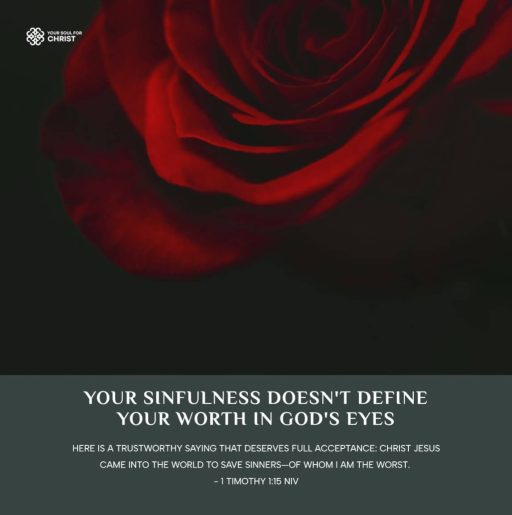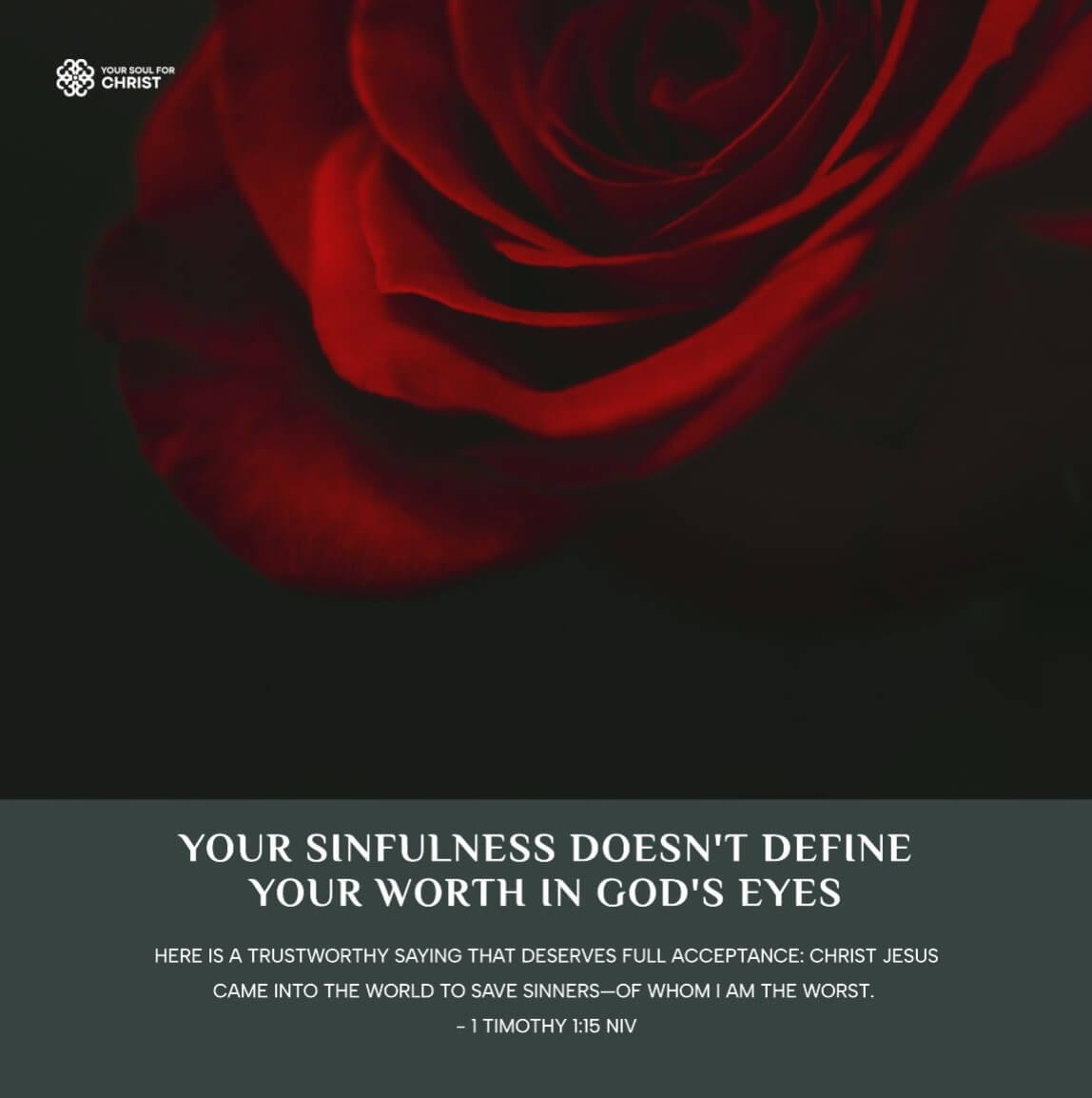Here is a trustworthy saying that deserves full acceptance: Christ Jesus came into the world to save sinners—of whom I am the worst.
1 Timothy 1:15 NIV
These powerful words, spoken by the Apostle Paul, offer a profound truth: salvation is not reserved for the virtuous, but for those who recognise their need. Like the Pharisees in Jesus’ time, many clung to self-righteousness, blind to their inherent sinfulness. They missed the very purpose of Christ’s arrival – to redeem the lost, not the self-assured.
Paul’s words in this verse aren’t about self-deprecation; it’s a profound recognition that salvation is not earned but graciously offered. It’s not about comparing our sins, but acknowledging our shared human condition – all have fallen short of God’s glory (Romans 3:23). We are born with a sinful nature, and regardless of our outward actions, this inherent flaw separates us from God. Just as the sick need a doctor, sinners need a saviour.
However, the good news is that Christ didn’t come to condemn but to offer salvation. He paid the ultimate price for our sins, becoming the bridge between us and God. The key message is clear: Christ came for sinners, not saints. He came to offer life to those who lack it, a truth echoed in Matthew 1:21. This salvation isn’t hidden; Christ has already paid the price for our sins (John 3:16).
Whoever believes in him is not condemned, but whoever does not believe stands condemned already because they have not believed in the name of God’s one and only Son.
John 3:18 NIV
Meanwhile, Paul, despite his past as a persecutor, acknowledged his sinfulness. This begs the question: how readily do we recognise our own shortcomings? Do we, like the Pharisees, justify our actions, missing the transformative power of Christ’s grace?
Likewise, Matthew 7:13-14 warns of the “wide gate and broad road” leading to destruction, the easy path most travel. Conversely, the “narrow gate and narrow road” leading to life requires intentionality and faith. Are we actively seeking this path, acknowledging our need for guidance?
Christ’s sacrifice is freely available, regardless of past deeds. He didn’t choose the “best” but the “worst” to demonstrate his limitless grace. So, it’s not about boasting of our good deeds, but acknowledging our inherent sinfulness and embracing his forgiveness.
Just as Paul responded to God’s love, so you too can. Will you accept this “indescribable gift” of salvation (2 Corinthians 9:15)? Will you choose the narrow path towards eternal life, acknowledging your need for Christ’s redemption? Christ’s sacrifice is freely available to all. He doesn’t ask us to earn our salvation; He simply asks for our faith. Will you acknowledge your need for Him and accept His gift of forgiveness and eternal life?
Remember: God doesn’t require perfection, but a heart open to his transforming grace. The journey starts with admitting your shortcomings and embracing the love offered through Christ Jesus. Don’t let pride or self-justification hinder you. Christ came for sinners like you and me. Embrace His love, receive His forgiveness, and walk the narrow path towards a life transformed by His grace.

